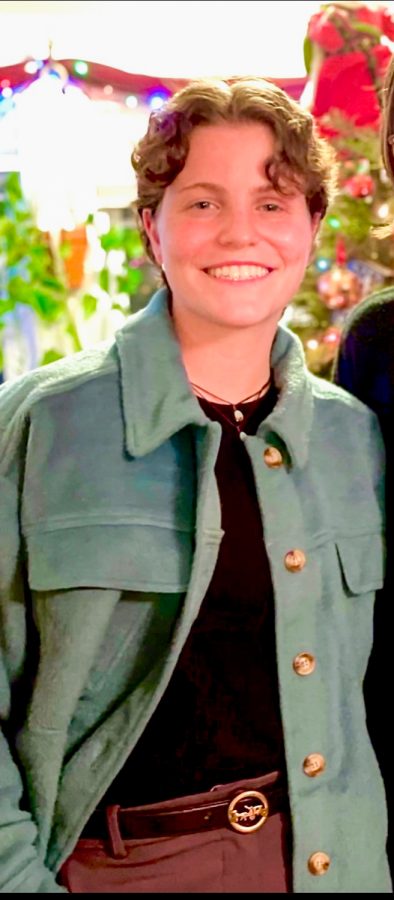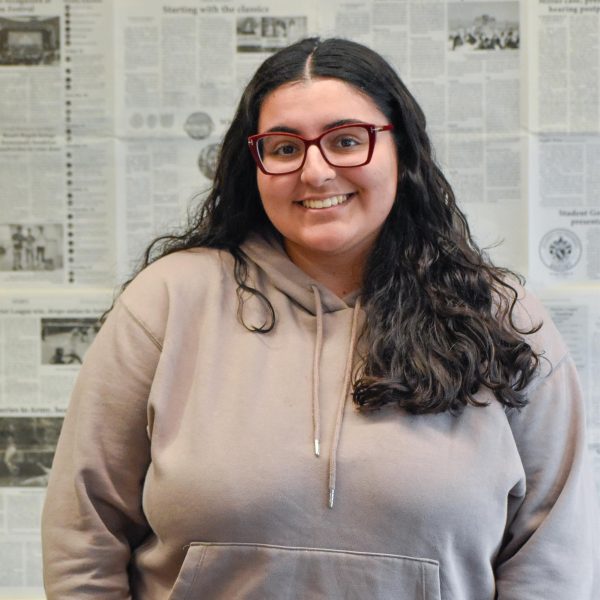Students got ink on their fingers last spring as they immersed themselves in an advanced journalism course that focused on LGBTQ+ issues. The course, taught by English Professor Kathleen Parrish, fostered a partnership with local news source Lehigh Valley Live and even led to the publication of student work on their website.
The idea took off when Parrish received the Journalism for Underheard Stories Grant from the University of Wisconsin.
“I just really liked the idea of being sort of a test pilot for reimagining the craft of journalism,” Parrish said of her motivation to apply for the grant.
One of her main goals when applying for the grant and designing the course was to take the traditional model of journalism and “turn it on its head.”
Parrish hoped to “have a conversation with a marginalized community and allow concerns and challenges and issues facing that community to sort of percolate to the surface,” she explained.
Lafayette’s Queer Archives Project (QAP), spearheaded by Women’s, Gender and Sexuality Studies and English Professor Mary Armstrong, was a major reason Parrish wanted her class to focus on the LGBTQ+ community at Lafayette.
The QAP, which catalogs the history of the queer community on Lafayette’s campus over the years and honors LGBTQ+ alumni, inspired Parrish to continue Armstrong’s work by centering queer stories through journalism.
One goal of Parrish’s was to ensure that “the community who is facing the challenges directs where the attention and focus should be,” meaning that LGBTQ+ people should be at the center of the discussion.
Another vital element of the course was Parrish’s partnership with Lehigh Valley Live. Specifically, Parrish and her class worked directly with Nick Falsone, managing producer and journalist for the outlet.
Falsone was present for more than half of the course’s sessions, serving as an active and integral part of the way the class functioned.
“He really was excited and welcomed this opportunity to help investigate challenges and issues facing [the LGBTQ+] community,” Parrish said.
According to Parrish, Falsone felt Lehigh Valley Live has historically lacked coverage of LGBTQ+ issues. Because of this, Falsone was very enthusiastic about participating as a guiding source for students in the course.
It was important to Parrish that the course made her students feel like professional journalists.
“I didn’t want to treat them as students. I wanted to treat them as journalists,” she said.
Parrish also feels that it is important for her students, and people in general, to understand the value of journalism and remain aware of events going on around them.
“How you act upon [the news] is up to you, but I believe very strongly you have a responsibility to be a part of the conversation,” she said.
Parrish and Falsone played a large role in facilitating many different facets of students’ projects. They guided the students toward proper journalistic principles, keeping them away from common mistakes like making their pieces too opinionated.
Reilly Hughes ’23, one of the students in Parrish’s class, focused her project on the concept of “rainbow capitalism,” a term to describe when large corporations use LGBTQ+ merchandise for the purpose of making a profit, rather than putting efforts toward actual LGBTQ+ support.
One of the major ways that Parrish and Falsone aided students like Hughes was by providing sources, such as Liz Bradbury and others at the Sullivan Community Center. The center aims to create a vibrant LGBTQ+ community in the Lehigh Valley through various programs.
“I had no idea [the Sullivan Community Center] even existed until Nick Falsone gave me the idea, and now half my article is based off the community center,” Hughes said.
Hughes’ article, titled “Rainbow capitalism in the Lehigh Valley: Some embrace while others exploit Pride Month,” was one of two from the class to be published in Lehigh Valley Live. The other published article was “Lehigh Valley’s public libraries have emerged as important institutions for LGBTQ” by Saide Singh ‘22.
“To be picked as one of the articles was like, ‘oh, what I’m doing is actually going to be put out into the world and read.’ It isn’t going to disappear,” Hughes said.
Hughes hopes that the impact of this class and the content created during the project will be far-reaching.
“This stuff is actually going to make a difference,” Hughes said.




















































































































